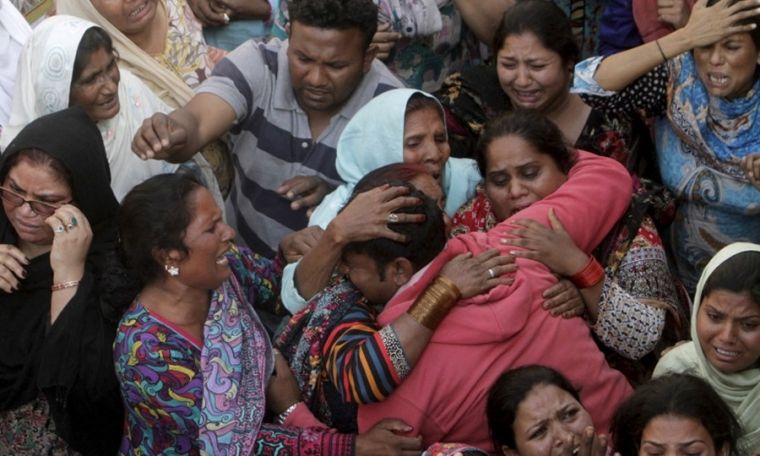Why do we care less about a terrorist attack in Pakistan than in Brussels?

Do Christians in the United States nowadays care enough about how people in other parts of the world are suffering from crime?
Lawyer Travis Wussow, an advocate for international justice and religious liberty, said Christians should empathise more with victims of crimes around the world, especially those affected by terrorist attacks.
"For Christians, our response to this situation can't just be to shrug and accept that this is just the way things are," Wussow, the director of international justice and religious freedom of the Ethics and Religious Liberty Commission (ERLC), said in an article on the group's website.
The ERLC is the public policy arm of the Southern Baptist Convention, the largest non-Catholic Christian denomination in the United States, with over 16 million members in over 43,000 independent churches. The ERLC is headquartered in Nashville, Tennessee, with an office in Washington, D.C.
Wussow even suggested a unique praying practice to be able to be more aware of other people's sufferings.
"This Saturday, pick up a physical copy of the newspaper and open to the international briefs section. Spend a few minutes to read the stories and pray for those affected by the story," Wussow urged fellow Christians.
He also suggested that Christians should also build more relationships with immigrants.
These relationships will expand our ability to care about the places where these friends are from—having a friend from China will help us to care about China and the Chinese people. But these relationships also open our eyes to differences in culture and make us more sensitive to people who are not like us," the lawyer said.
He further suggested that believers of Christ use social media websites to increase their awareness of what is happening in other countries.
"All of our Facebook and Twitter feeds are populated with news and information from people that are like us—they are our friends after all. This means that intentionality is required if we are going to get out of our echo chamber. Sign up for an international digest from your favorite newspaper," he said.
Wussow said the lack of media coverage and public interest on the recent terrorist attack in Pakistan, which killed at least 74 people and wounded 362, showed that Christians should expand their horizons more when it comes to sympathising with others.
"It's true for me, too: I care less about the attack in Pakistan than I do the Brussels attack. I'm less hungry for news about the attack in Pakistan. Only when I found out that the attack in Pakistan was specifically targeting Christians on Easter Sunday did the story really pique my interest. I don't like this about myself, and I wish it wasn't true," the justice advocate himself admitted.











